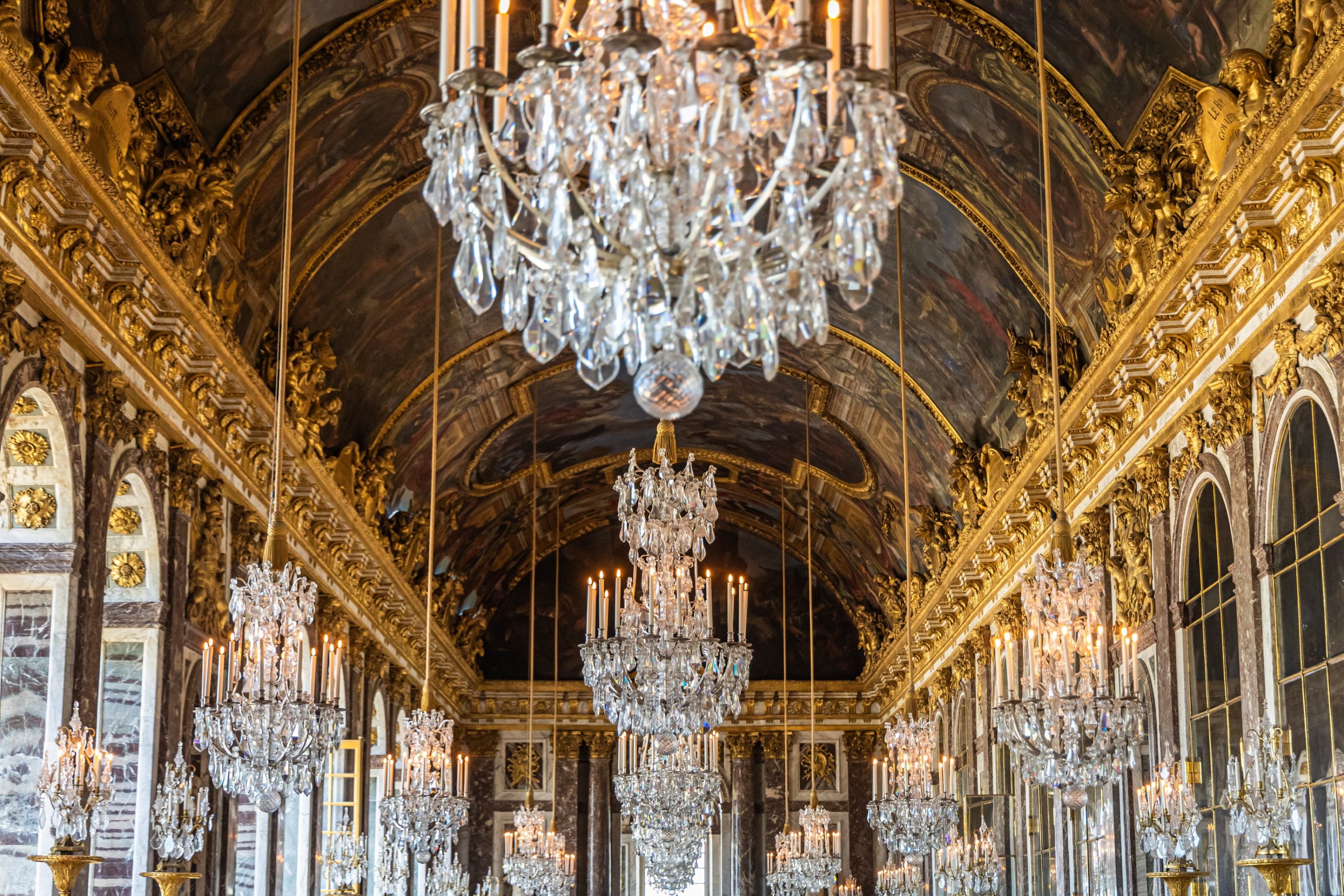© Turkuvaz Haberleşme ve Yayıncılık 2025
France is extending a warm welcome to King Charles III for his state visit, and they have chosen the iconic Palace of Versailles, which is celebrating its 400th anniversary, as the splendid venue for this event.
Charles and Queen Camilla's three-day trip to Paris and Bordeaux, starting Wednesday, includes a grand dinner at Versailles in the presence of over 150 guests in the Hall of Mirrors.
It comes as the Palace of Versailles just opened to the public the gallery that retraces its history, from its creation as a modest hunting lodge in 1623 to last century's key diplomatic events – including the visits of Charles’ predecessors.
French President Emmanuel Macron’s office said Wednesday's dinner echoes the state visit of Queen Elizabeth II in 1972 when she was greeted at the Palace by President Georges Pompidou. King Charles liked the idea of following in his mother’s footsteps, according to Macron's office.
Elizabeth II also visited the palace in 1958 and 10 years before, when she was not yet a Queen.
Catherine Pegard, president of the Palace of Versailles, praised the "never-ending story” of the palace that "includes visits from French children who come to Versailles with their classes, as well as visits from His Majesty the King of England or tourists who arrive from Asia and are less familiar with the history."
"And we have a story to tell each one of them,” she told the Associated Press (AP).
Usually filled with a chaotic crowd of photo-snapping tourists from across the world, the Hall of Mirrors will be closed to visitors on Wednesday to prepare for the royal banquet. No details have been provided about the menu yet, but the French presidency said it will be an opportunity to showcase France's cultural and gastronomical excellence.
Charles' visit will make one more date in the Palace's long history starting from King Louis XIII, to the French Revolution and all the way to modern times that is being presented on its ground floor into the newly opened Gallery of the History of the Palace.
The gallery has 11 rooms, each thematic and largely chronological, presenting over 120 works aimed at providing visitors from across the world an immediate understanding of the complex history of the palace.

It brings together recently acquired works alongside paintings and art pieces that for many years had gone unseen as they had been in reserve and others that are now repositioned and better enhanced.
Laurent Salome, director of the National Museum of the Palace of Versailles and Trianon, said the exhibit features a number of masterpieces.
"Our intention was to create a first great moment of pleasure for visitors. First of all, because they’ve traveled a lot. For a long time, they’ve dreamed of Versailles. We didn’t want to give them a boring lesson to start their visit," he said.
Some pieces of work come from the original version of the palace and its gardens under its great builder Louis XIV, who decided to expand his father’s hunting lodge.
It's "a history made by not just one monarch, it’s also an enormous team of artists - and the greatest artists. A good thing about absolute monarchy is to be able to gather all the best people at the same place,” Salome stressed.
Today the Palace contains 2,300 rooms spread over 63,154 square meters (679,784 square feet).
The gallery of history also provides an occasion to discover anecdotes about the Palace’s life – like some panels of the "Chinese chamber” of Queen Marie Leszczynska, Louis XV's wife, that she in part painted herself.
In the last rooms, visitors can see the famous desk where the 1919 Treaty of Versailles was signed formally ending World War I, as well as photos and video archives of heads of state and royalties honored at the Palace during the 20th century.
"The idea is also to show that there is a gradual transformation of the Chateau de Versailles, which has always remained alive through the centuries, from its creation to the present day,” Salome said.
